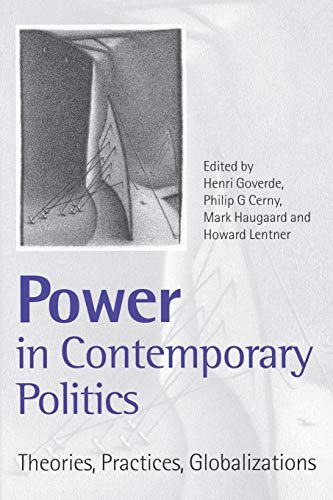This major book provides an up-to-date and state-of-the-art overview of the contemporary theory and practice of the most central concept in political science: power. The concept of political power is introduced within a three-part framework: contemporary theories of power; applications of power processes and practices; and the implications of modern power flows across the globe today. The book explores the many structures of power in the contemporary world from theories of its construction and use, to its operation in policy networks, and its wider exercise at different levels in the political process, from the local to the global. Amongst the many themes explored are the reproduction and the legitimization of power, the dynamics of resistance and coercion, the concepts of private and public power, and the impact of globalization processes and subsequent shifting power arrangements. Combining diverse perspectives and different tools of analysis, this book represents the most comprehensive treatment of political power for over a decade. It will be essential reading for academics and students alike across political science, international studies and political sociology.
Phil Cerny is Professor of Government at the University of Manchester.
Henri Goverde is Associate Professor in Public Administration in the School of Public Affairs, University of Nijmegen, and Professor of Political Science, Wageningen University and Research Center.
Mark Haugaard is Lecturer in the Department of Political Science and Sociology at the National University of Ireland, Galway.
Howard H Lentner is Professor of Political Science, Baruch College, and the Graduate School, City University of New York.
CONTRIBUTORS′ AFFILIATIONS:
Bas Arts University of Nijmegen
Erkki Berndtson University of Helsinki
Stewart Clegg University of Technology, Sydney
Gerhard Goehler Free University of Berlin
Elina Penttinen University of Turku, Finland
Hilmar Rommetvedt Rogaland Research Institute, Norway
Jan van Tatenhove University of Nijmegen
